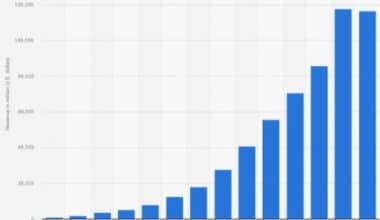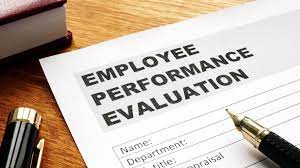In any business, bookkeeping and accounting are two fundamental aspects of its day-to-day operations. Both of these components assist business owners and CEOs in keeping track of expenses, making informed business decisions, and avoiding notable concerns like fraud and embezzlement. However, while the roles of bookkeeping and accounting are extremely similar, there are considerable variations between the two. In this post, we’ll go over the key differences between bookkeeping and accounting (Bookkeeping vs Accounting), as well as how each role contributes to a company’s growth and long-term viability.
Bookkeeping vs Accounting (Major Differences between Bookkeeping and Accounting)
The ensuing paragraphs properly outline and describes the major differences between the two business components.
1. Bookkeeping vs Accounting Definitions
The first significant distinction between bookkeeping and accounting is in their definitions.
For starters, bookkeeping is the process of acquiring, arranging, storing, and accessing a company’s financial information base. This is necessary for day-to-day business operations and serves as the foundation for financial statements, tax filings, and other key reports. In a nutshell, bookkeeping is the practice of keeping track of financial transactions.
Accounting, on the other hand, encompasses a wider range of activities than bookkeeping. It is a “systematic process of detecting, recording, measuring, classifying, verifying, summarizing, interpreting, and disseminating financial information.”
In other words, accountants are trained to do more than just record transactions; their training goes a little deeper. This offers them the luxury of being able to explain the financial data to the company’s main stakeholders.
An accountant, for example, can produce reports on the company’s present financial situation, which can help the owner or executive make informed business decisions in the future.
#2. The Goals
Considering the fact that bookkeeping and accounting are two unique procedures, it’s only logical that their final goals would be different as well.
A bookkeeper’s main goal is to keep track of all financial transactions in a coherent and methodical manner. In general, bookkeepers keep track of financial transactions in chronological order. They use one of two major record-keeping systems, which we’ll get into more depth about later.
An accountant’s principal purpose is to determine the company’s financial health or well-being and communicate this information to key stakeholders. As a result, the accountant’s primary concern is with the analysis and interpretation of all financial data that has been produced, rather than the day-to-day activities of bookkeeping (which are also important).
#3. Job Description
Definitely, the scope and job description of these two are likewise different. Let’s take a brief look at them.
Responsibilities of a Bookkeeper
The following are examples of bookkeeping responsibilities:
- Prepare invoices for customers.
- Pay up your obligations as they become due.
- Gather sales taxes and send them to the Government.
- Keep track of your monetary receipts.
- Deposit money in the bank
- Reconcile each bank account on a monthly basis.
- Reconcile all accounts on a regular basis to ensure accuracy and completeness.
- Ensure that the petty cash fund is kept up to date.
- Maintain a well-organized accounting filing system.
- Keep the annual budget on track.
- Processes payroll on a regular basis and on time.
- As needed, provides clerical and administrative assistance.
Responsibilities of an Accountant
Accountant responsibilities cover a wide range of essential functions. These duties could include the following:
- Reading and interpreting financial records correctly
- Ensuring that the company complies with all applicable state and federal rules
- Providing business leaders with expert financial guidance
- Preparing tax forms and examining ways to reduce tax liability
- Financial Statement Preparation
- Bringing reports to the attention of key stakeholders
- Putting in place a robust accounting system to prevent fraud and embezzlement
- Keeping track of the job of Bookkeepers
While bookkeeping and accounting tasks frequently overlap, bookkeepers concern themselves more with the day-to-day upkeep of financial data, accountants focus on using the company's financial data to make sound business decisions.
#3. Bookkeeping vs Accounting: What Skills are Required?
In most cases, the bookkeeping profession hardly necessitates acquiring a specific skill set or a post-secondary education. But then Bookkeepers should be strong in basic math and arithmetic, well-organized and detail-oriented, and precise in their work to avoid errors.
The National Bookkeepers Association offers certification to bookkeepers (NBA). They can also join the National Association of Certified Public Bookkeepers (NACPB) to become a Certified Public Bookkeeper.
On the other hand, a bachelor’s degree in accounting or a similar discipline, such as internal auditing, is a must-have for accounting positions.
Accountants, however, often choose to take the Uniform CPA Examination to obtain their Certified Public Accountant certification (CPA).
Read Also: CPA Firm: A Comprehensive Guide For The Best Results
But, most state boards need accountants to have at least two years of professional experience before they may sit for the exam.
Meanwhile, CPAs must keep up to date with current rules and practices by taking educational courses and renewing their license on a regular basis after earning their certification.
#4. Accounting and Bookkeeping Types
Single entry and double-entry bookkeeping are the two most common types of bookkeeping.
For each transaction, single-entry systems use only one record. They are mostly concerned with cash receiving and disbursements transactions. Although this is a basic record-keeping system, the risk of fraud is high because accounts cannot be reconciled.
Each transaction in a double-entry system, on the other hand, involves two records; one credited account and one debited account.
While the double-entry approach is substantially more complex than the single-entry method, it corresponds to GAAP standards and is thus more secure and extensive in scope.
Read Also: GAAP: Overview, Importance, History, Limitations
Accounting types, in contrast to the two primary categories of bookkeeping outlined above, cover a wide range of critical functions. These methods of accounting include the following:
- CPAs
- Forensic accountants who are responsible for identifying omissions, errors, or fraud in financial documents through a comprehensive analysis.
- Third-party auditors who provide protection against fraud and embezzlement.
- Staff accountants are referred to as the “generalists” of the accounting profession.
#5. Financial Statement Preparation
Basically, bookkeepers do not possess enough qualifications to prepare financial statements. They may be useful when it comes to investigating specific critical areas of income or expenditure in a business and submitting these to the management for assessment, bookkeepers, however, rarely generate financial statements.
On the flip side, one of the accountant’s main responsibilities is to prepare comprehensive financial statements that may be useful in managerial decisions; or sometimes, submitted to third-party investors.
The Evolution of Accounting vs Bookkeeping
It’s simple to see how the line between bookkeeping and accounting is becoming more muddled now that you know the difference. There has been a significant shift in the way things are done in recent years. The procedures for creating more complicated accounts have been substantially simplified thanks to computer software and smartphone app development. There’s no reason to believe that this pattern won’t continue in the future.
The distinction between accounting and bookkeeping is becoming increasingly blurred as a result of these technological advancements. Many components of accounting have been absorbed into the field of bookkeeping over time. Many financial statements that were formerly the responsibility of an accountant can now be generated using today’s technologies.
Is this, however, implying that bookkeeping will become obsolete?
The truth is that there will always be a distinction between the two positions, and while software may generate complex accounts from data entered by a bookkeeper, an accountant’s personal touch will still supply the crucial subtleties that a computer program cannot.
Year-end accounts are a perfect example of this, as they require particular adjustment inputs.
In any case, if you feel the need to flow with the new trend, our various posts on accounting software will help you get started on the right foot.
Read Also: PeachTree Accounting Software Overview and Guide 2022 (Updated!)
What Is the Difference Between Accounting and Bookkeeping?
The first significant difference between bookkeeping and accounting is in their definitions.
For starters, bookkeeping is the process of acquiring, arranging, storing, and accessing a company’s financial information base. Accounting, on the other hand, encompasses a wider range of activities than bookkeeping. It is a “systematic process of detecting, recording, measuring, classifying, verifying, summarizing, interpreting, and disseminating financial information.”
What Do You Mean by Bookkeeping and Accounting?
For starters, bookkeeping is the process of acquiring, arranging, storing, and accessing a company’s financial information base. Accounting, on the other hand, encompasses a wider range of activities than bookkeeping. It is a “systematic process of detecting, recording, measuring, classifying, verifying, summarizing, interpreting, and disseminating financial information.”
What Pays More Bookkeeping or Accounting?
According to PayScale, a bookkeeper’s average income is $41, 244, while an accountant’s average salary is $50, 420. Accountants often earn more than bookkeepers due to their additional training and credentials.
What Comes First Accounting or Bookkeeping?
Both exist in the financial department of a company and are inextricably linked, yet bookkeeping and accounting are not the same. Accounting is made up of several parts, with bookkeeping coming first Some refer to it as accounting’s basis or the necessary groundwork.






